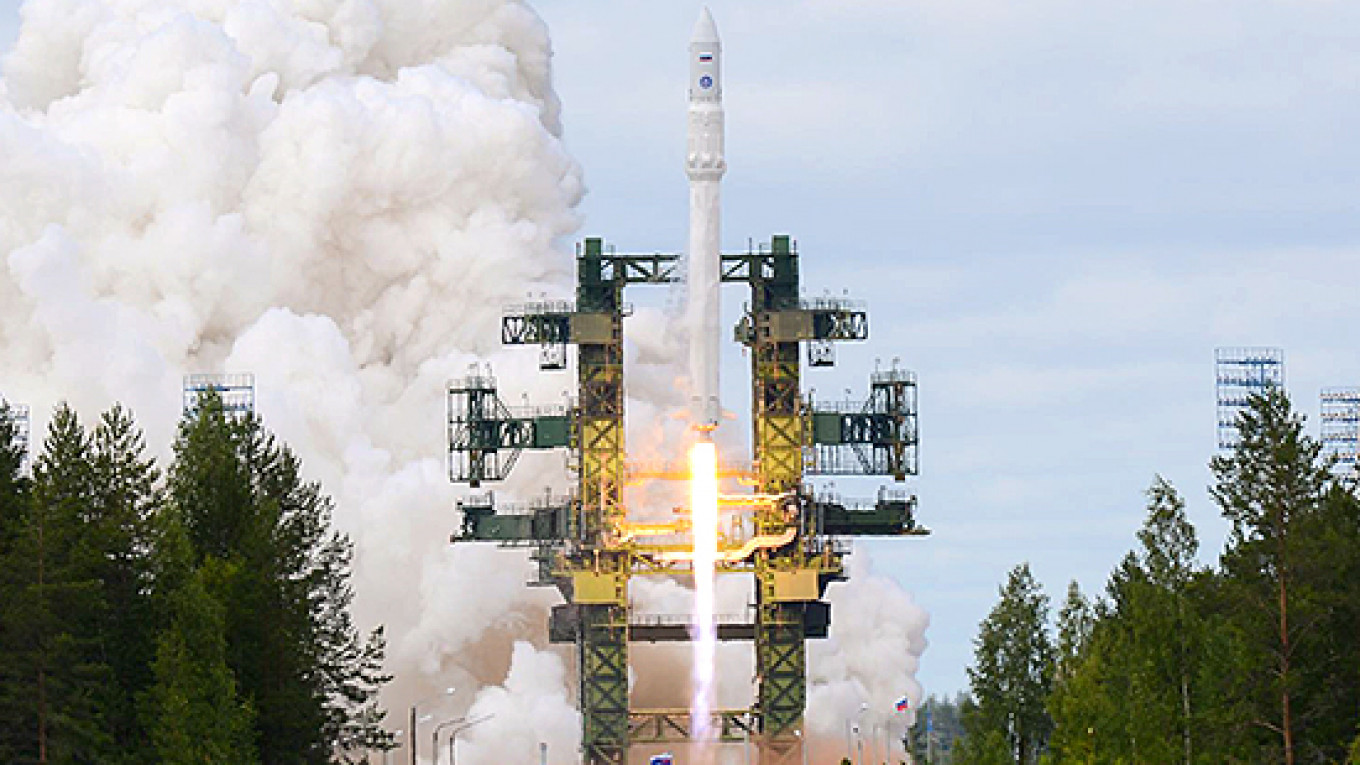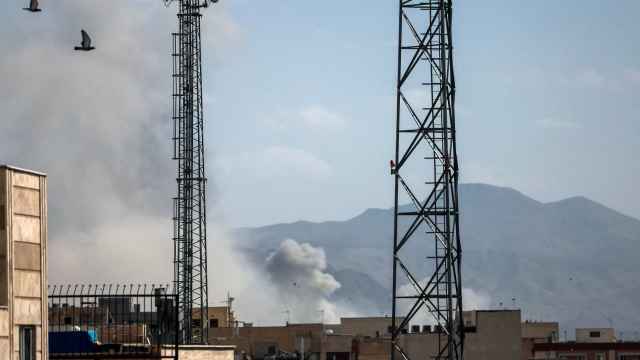Russia launched its first post-Soviet rocket on Wednesday, signaling that the country may still have a horse in the space race after decades of disappointment.
The Angara rocket lifted off from the Plesetsk Cosmodrome near Arkhangelsk in Russia's far north and flew for 25 minutes on a sub-orbital ballistic trajectory before landing at the Kura test-range in the far eastern Kamchatka Peninsula.
"Angara" is there!
— Dmitry Rogozin (@DRogozin) July 9, 2014
Deputy Prime Minister Dmitry Rogozin, who oversees the Russian space and defense industries, celebrated the successful launch of Angara on his Twitter account.
The successful launch shows that Russia's space industry, which has fallen on hard times in recent years, can design brand new vehicles exclusively using domestically-made components.
The industry has managed to stay afloat since the fall of the Soviet Union by modernizing tried-and-true Soviet designs.
The launch was originally scheduled for June 27, but the rocket's flight computer automatically aborted the attempt seconds before liftoff. A drop in oxidizer pressure caused by a leaky valve was responsible for the shutdown.
Breaking a decades-old tradition of conducting new rocket tests away from the public gaze, the Russian media televised the first attempt. A few minutes before the launch was meant to go ahead, state media outlets cut to President Vladimir Putin watching the proceedings, or lack of them, from the Kremlin.
However, reverting to Soviet form, Wednesday's launch was not televised live.
Zvezda, a television station with close ties to the Defense Ministry, showed a clip of the launch after it had been confirmed a success.
Footage of the Angara rocket taking off from the Plesetsk Cosmodrome. (YouTube / TyphoonUSSR)
Angara was commissioned in the early 1990s, when Russian space officials were concerned that an independent Ukraine might withhold deliveries of vital components used in Russian rockets such as Proton.
The version of Angara that Russia tested on Wednesday is the Angara 1.2PP light. It is the first in a series of Angara rockets that will be capable of lifting light, medium and heavy payloads into space.
Russia is currently building a new cosmodrome in the Far East called Vostochny, which will become the primary launch site for Angara rockets after its completion in 2017.
Although Angara is intended to replace Russia's commercial workhorse, the Proton rocket, there are doubts that the program will become commercially viable. The rocket faces stiff competition from foreign launch firms such as the California-based SpaceX.
Read our in-depth analysis of the Angara rocket's significance:
Angara Launch Troubles Reflect Russia's Struggling Space Industry
A Message from The Moscow Times:
Dear readers,
We are facing unprecedented challenges. Russia's Prosecutor General's Office has designated The Moscow Times as an "undesirable" organization, criminalizing our work and putting our staff at risk of prosecution. This follows our earlier unjust labeling as a "foreign agent."
These actions are direct attempts to silence independent journalism in Russia. The authorities claim our work "discredits the decisions of the Russian leadership." We see things differently: we strive to provide accurate, unbiased reporting on Russia.
We, the journalists of The Moscow Times, refuse to be silenced. But to continue our work, we need your help.
Your support, no matter how small, makes a world of difference. If you can, please support us monthly starting from just $2. It's quick to set up, and every contribution makes a significant impact.
By supporting The Moscow Times, you're defending open, independent journalism in the face of repression. Thank you for standing with us.
Remind me later.






